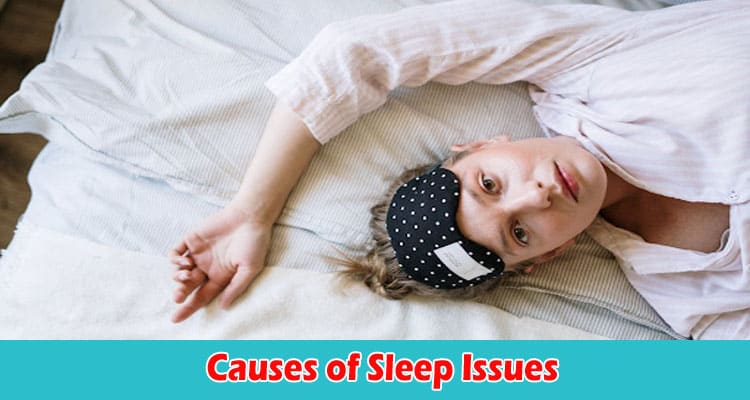In the United States, around 70 million individuals suffer from different sleep issues. Around 1 out of 3 adults in the country suffer from inadequate sleep every day. Different factors and underlying conditions can cause sleep issues.
We might have heard of common sleep issues like stress due to concerns about education, finances, and family, among many others. However, beyond these common root causes, there are lesser-known reasons that you might have to know.
Let’s shed light on these commonly overlooked causes of sleep issues and discover the treatment for each.
Restless Legs Syndrome (RLS)
Restless Legs Syndrome (RLS), or Willis-Ekbom Disease, is a neurological disorder that causes you to feel the impulse to move your legs due to uncomfortable or painful sensations.
The symptoms may manifest and intensify when you rest during the night, disrupting your sleep. The uncomfortable sensation would stop when you move your leg, but it will likely recur once you stop moving them.
Around 10% of the US population may have suffered from RLS, according to the National Institute of Neurological Disorders and Stroke. Both males and females can be affected by this disease.
While there’s no treatment for RLS, there are ways to manage its symptoms. Medications include iron supplements, anti-seizure drugs, dopaminergic agents, opioids, and benzodiazepines. Lorazepam, a type of benzodiazepine, can be prescribed by doctors to RLS patients.
Lorazepam drug pricing without insurance may require you to shell out a significant amount of money since it’s a medication that needs to be taken “as needed”. To save on this drug, try looking for coupons or patient assistance to help you cover the cost.
Periodic Limb Movement Disorder (PLMD)
Previously known as sleep myoclonus, Periodic Limb Movement Disorder (PLMD) is a condition that defines repetitive limb movements during sleep, causing sleep disruption. These repetitive movements happen with intervals of 5 to 90 seconds in between.
Around 80% of patients with Restless Leg Syndrome also suffer from Periodic Limb Movement Disorder. Medical conditions like iron deficiency, diabetes, spinal cord injury, and uremia are highly associated with Periodic Limb Movement Disorder.
Common triggers for this disease are caffeine, side effects of antidepressants, attention deficit hyperactivity disorder (ADHD), spinal cord injury/tumor, and other sleep disorders like narcolepsy.
To manage its symptoms, patients should avoid foods that contain caffeine, like chocolates, soft drinks, tea, and coffee. Medications to treat PLMD include anticonvulsant medications, benzodiazepines, dopamine agonist, and narcotics.
Sleep-related Eating Disorder (SRED)
Sleep-related Eating Disorder (SRED) is a condition that causes sufferers to eat when they are asleep. It’s a type of parasomnia that leaves patients with no memory of what they did while asleep. Because patients would prepare and cook food when they are asleep, they are likely to get burns and cuts during the process. Other risks include eating nonedible food while asleep, leading to getting poisoned.
Many people with Restless Legs Syndrome also suffer from Sleep-related Eating Disorders. Basically, there are two types of Sleep-related Eating Disorders: drug-induced sleep-related eating disorder, which is caused by certain medications, and primary sleep-related eating disorder, which is triggered by other existing sleep disorders.
If you have the first type of this disease, your doctor would advise you to stop taking the medications that might have triggered SRED. Other treatments include selective serotonin reuptake inhibitors (SSRIs).
These are antidepressant medications that boost the serotonin levels in our brains. Lifestyle changes like incorporating yoga and meditation in your routine could also help. Reducing or totally avoiding screen time and avoiding caffeine and alcohol are other recommended ways to manage the symptoms.
Other Factors Affecting Sleep
We have already mentioned the lesser-known causes of sleep issues. To help you identify the other causes of your sleep problems, here are other factors we might have missed in the discussion above.
-
Anxiety
If you are suffering from anxiety, you will likely experience vivid dreams that would cause fear of falling asleep, affecting your sleeping schedule and routine.
-
Depression
Previous traumas might cause depression. These traumas could haunt you in your sleep, causing night terrors, nightmares, and flashbacks, affecting your sleep. On the other side, other sufferers tend to sleep a lot as they see sleeping as an escape from emotional pain.
-
Chronic Pain
People with chronic pain wake up frequently during sleep because of the pain. The pain keeps the nervous system active, thus keeping a patient awake or causing frequent awakenings after sleep onset.
-
Sleep Apnea
Sleep Apnea is a condition that causes you to stop breathing when you’re sleeping. Consequently, the brain would wake you up to alert your system so you can continue to breathe, but this triggers inadequate sleep.
-
Diet
The food you eat can affect your sleep routine. For instance, excess sugar triggers more frequent awakenings, and high saturated fat decreases the amount of sleep you can get every night.
-
Exercise
Moderate to vigorous exercise routines can help increase sleep quality for adults by helping them sleep early. Moreover, it helps people manage daytime sleepiness, thus resulting in a more productive day.
Conclusion
There are different types of sleep problems, and symptoms could vary from patient to patient. The lesser-known sleep issues we mentioned here are only a few of many. If you notice any symptoms, it’s important to seek professional help and get expert advice to get treated as early as possible.







